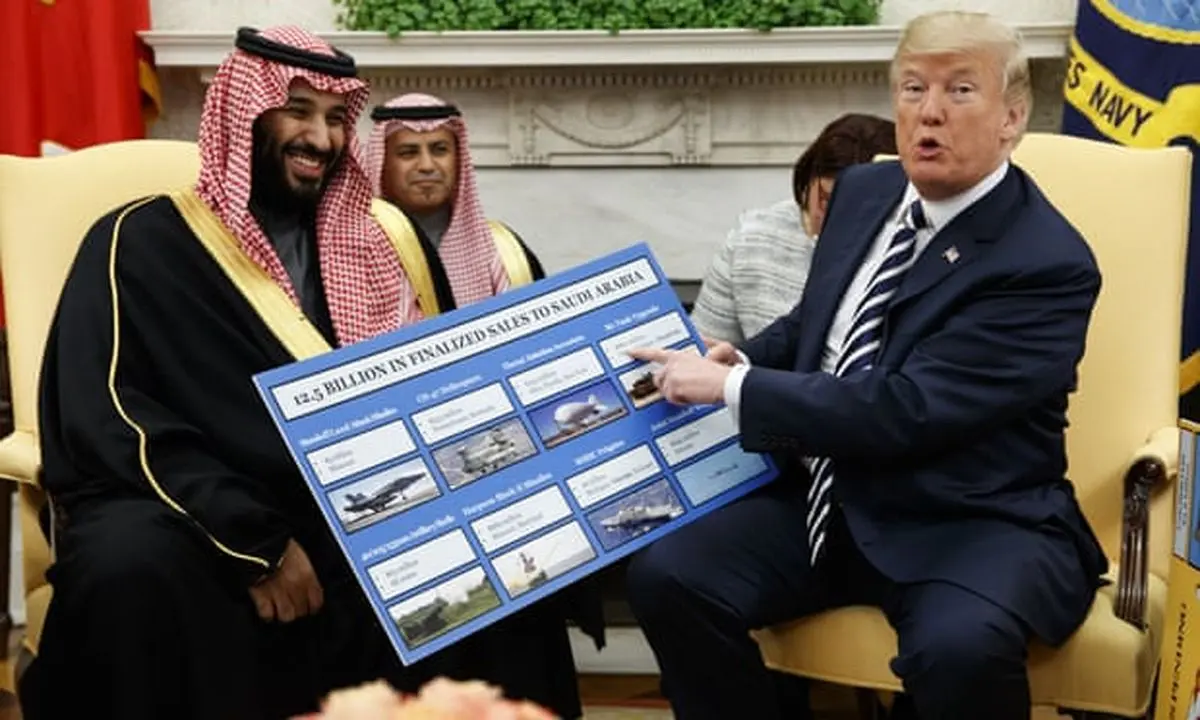Senate rejects Saudi arms sales in rebuke to Trump

The U.S. Senate on Thursday voted to block the sale of billions of dollars in military sales to Saudi Arabia, the United Arab Emirates and other countries, rejecting President Donald Trump’s decision to sidestep Congress’ review of such deals by declaring an emergency over Iran.
Trump has promised to veto the Senate action in order to proceed with the deals, worth some $8.1 billion. Senators would need 67 votes to override his veto, which looked unlikely after Thursday’s votes. The first and second resolutions of disapproval passed 53-45 and a third vote covering the remaining 20 resolutions was 51-45.
Backers of the resolutions, led by Democrat Bob Menendez and Republican Lindsey Graham, said they sent a bipartisan message to Saudi Arabia that Washington is not happy about human rights abuses, including the murder of journalist Jamal Khashoggi at a Saudi consulate in Turkey.
Menendez, the top Democrat on the Senate Foreign Relations Committee, said the disapproval resolutions also reflected Congress’ desire to preserve its powers to declare war and review major foreign weapons sales. Trump also used an emergency declaration strategy to circumvent Congress and try to get funding for a wall on the Mexican border.
Menendez scoffed at the administration’s contention that the threat from Iran was an emergency that warranted so many weapons sales to third countries. “This is a power grab, pure and simple, with lasting implications for the role of Congress in the sale of arms around the world,” Menendez said.
The resolutions are expected to pass the Democratic-controlled House of Representatives before reaching Trump’s desk.
Despite Trump’s veto threat, members of Congress said they expect some Saudi-related legislation would come into effect this year.
Lawmakers are working on a separate measure “to hold Saudi Arabia accountable” for human rights abuses and Khashoggi’s murder.
The Senate Foreign Relations Committee also is due to consider as soon as next week legislation that would take away the ability of Trump, or any president, to use emergency authority to sell arms to any country besides NATO members and certain other key partners without congressional review.
In London on Thursday an English court ruled that Britain had broken the law by allowing arms sales to Saudi Arabia that might have been deployed in the war in Yemen, after activists said there was evidence the weapons had been used in violation of human rights statutes.
END
